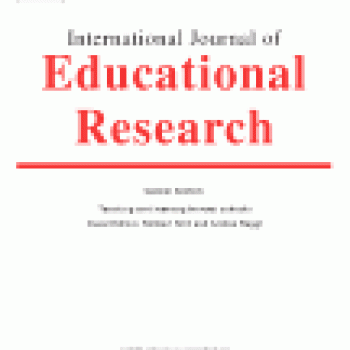Publication Information

Several studies in developing countries have found that children who experience growth faltering in the first years of life show lower cognitive abilities than their peers. In this study, we use the Young Lives longitudinal dataset in Peru to analyse whether attending pre-school affects cognitive abilities at age 5 years, and if there is an interaction with HAZ at age 1 year. Using instrumental variables we found, for receptive vocabulary, a positive effect of attending Jardines (formal pre-schools); the effect of attending PRONOEI (community-based) pre-schools was not significant. More years attending Jardines was more beneficial for children who were better nourished. We suggest working to improve the quality of PRONOEIs, and with teachers on targeting children of lower nutritional status.
Highlights An examination of cognitive abilities among a Peruvian child cohort with early-life stunting. Attending formal pre-schools affects positively children's receptive vocabulary. Attending community-based pre-schools does not affect children?s vocabulary. More years attending formal pre-schools benefits more better-nourished children.Keywords: Child development; Pre-school; Height-for-age; Peru Reference
Santiago Cueto, Juan León, Alejandra Miranda, Kirk Dearden, Benjamin T. Crookston and Jere R. Behrman (2016) 'Does Pre-school Improve Cognitive Abilities among Children with Early-life Stunting? A Longitudinal Study for Peru', International Journal of Educational Research 75: 102?114, doi:10.1016/j.ijer.2015.09.011

Several studies in developing countries have found that children who experience growth faltering in the first years of life show lower cognitive abilities than their peers. In this study, we use the Young Lives longitudinal dataset in Peru to analyse whether attending pre-school affects cognitive abilities at age 5 years, and if there is an interaction with HAZ at age 1 year. Using instrumental variables we found, for receptive vocabulary, a positive effect of attending Jardines (formal pre-schools); the effect of attending PRONOEI (community-based) pre-schools was not significant. More years attending Jardines was more beneficial for children who were better nourished. We suggest working to improve the quality of PRONOEIs, and with teachers on targeting children of lower nutritional status.
Highlights An examination of cognitive abilities among a Peruvian child cohort with early-life stunting. Attending formal pre-schools affects positively children's receptive vocabulary. Attending community-based pre-schools does not affect children?s vocabulary. More years attending formal pre-schools benefits more better-nourished children.Keywords: Child development; Pre-school; Height-for-age; Peru Reference
Santiago Cueto, Juan León, Alejandra Miranda, Kirk Dearden, Benjamin T. Crookston and Jere R. Behrman (2016) 'Does Pre-school Improve Cognitive Abilities among Children with Early-life Stunting? A Longitudinal Study for Peru', International Journal of Educational Research 75: 102?114, doi:10.1016/j.ijer.2015.09.011

